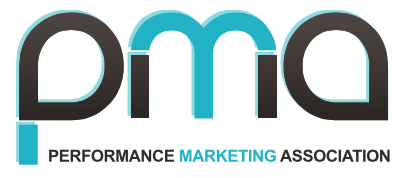
Affiliate Marketers and the SBA Paycheck Protection Program
Paycheck Protection Program – Is This For Me?
In response to the Coronavirus epidemic and the disastrous effect it is having on the United States economy, Congress passed and the President signed the Coronavirus Aid, Relief and Economic Security Act (or the “CARES Act”) which includes the Paycheck Protection Program (the “PPP”). The PPP is an expansion of an existing loan program administered by the Small Business Administration (the “SBA”). The CARES Act appropriates $349 billion for loans under PPP (“PPP Loans”).
Qualifications: Beginning on February 15, 2020 and ending on June 30, 2020, the following types of organizations are also eligible to receive PPP Loans:
- any business concern, nonprofit organization, veterans organization or tribal business concern that employs not more than 500 employees;
- any individual who operates under a sole proprietorship or as an independent contractor and other eligible self-employed individuals; and
- any business concern in the accommodation and food services industries with more than one physical location that employs no more than 500 employees per location.
Affiliates, networks and brands may well be eligible for the program, subject to the analysis above and additional requirements. For example, if a company has affiliates outside the U.S. or foreign ownership, additional analysis is needed.
Loans: The maximum loan amount will be equal to 2.5 times the average total monthly payments by the borrower for fully-loaded payroll costs that are incurred during the one-year period before the loan is made (excluding compensation of any individual employee in excess of an annual salary of $100,000), up to a maximum loan amount of $10 million. For these purposes “payroll costs” excludes the portion of salary of any employee that exceeds $100,000 per year (i.e., the monthly cost of a highly compensated employee is capped at $8,333 per month). Independent contracts do not count as a company’s employees when calculating their payroll costs.
Solos / Independent Contractors: If a person is operating a business as a sole proprietor or independent contractor, like many affiliates, then such person will be eligible to receive a loan in an amount equal to 250% of such individual’s average monthly income or earnings from self-employment (subject to the same $8,333 per month cap above).
Use of Funds: You may use the proceeds of a PPP Loan for any purpose allowed by the SBA, as well as for (i) payroll costs, (ii) payments of interest (but not principal) on any mortgage obligation, (iii) rent, (iv) utilities and (v) interest on any other debt obligations that were incurred before February 15, 2020. You must use 75% of the load for payroll costs.
Loan Forgiveness: – Some of the finer points remain unclear and the SBA stated recently that it will be issuing additional guidance on loan forgiveness in the coming days. However, the intention is that the actual payroll costs and rent and utility expenses that the company incurs during the 8 week period following the date the loan was advanced will be entirely forgiven by the federal government. The Loan forgiveness amount is subject to certain limitations and loan forgiveness can be reduced based on certain expenditures or actions (such as laying off employees), in which case some of the loan will need to be repaid. No collateral. No personal guaranty.
Keep in mind that the PPP is a ‘first come, first serve’ program! Once the pool of money made available by the federal government is gone, no more such loans could be issued without more money being allocated by Congress.
The above is a high-level summary, but is not intended as legal advice. You must confer with your own legal counsel and financial advisors.
Most importantly, please stay safe and follow guidance from healthcare officials. We stand together by standing apart. All the best to you and your loved ones.

 Follow
Follow
Pingback: Affiliate Marketing Industry News Roundup 4-7-2020
April 7, 2020 at 11:05 amPingback: PMA Post: Affiliate Marketers And The SBA Paycheck Protection Program
April 14, 2020 at 2:01 am